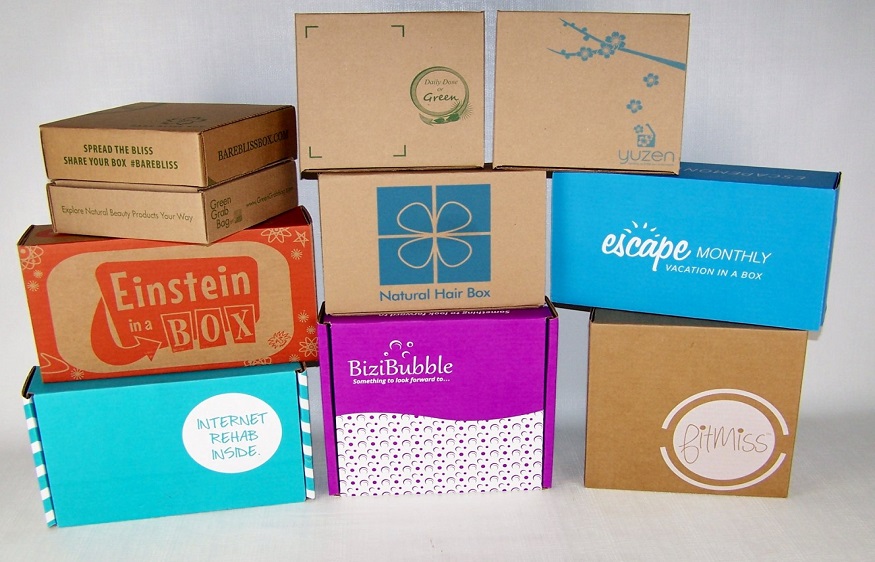Benefits Of Using Product Labels For Your Business

Do you have a lot of products on the market? Are you struggling to keep track of which product is which? Do you find it difficult to differentiate your products from your competitors’? If these sounds are familiar, it may be time to invest in product labels. Labels and printing company for lubricants are essential for ensuring that your customers can easily identify the product they’re looking for and that you’re not spending needless money on printing and distribution costs.
Increase Sale Of Products
There are many benefits to using product labels for your business. For one, product labels can help you increase the sale of your products. Make sure labels are effective and make sense for your business – for example, if your product is for beauty, use labels that reflect this.
Additionally, add a label to each product before you sell it so buyers know what they’re getting. Additionally, use different labels for each product in your line to be more specific about what it is. Doing so will help buyers make informed decisions about which product to buy.
Better Customer Retention
When it comes to customer retention, private label motor oil are a key factor. They help customers identify the product they’re buying and understand its benefits. Additionally, product labels can keep them updated on changes to the product’s ingredients or dosage, which can be important for their safety.
In addition, product labels can increase customer loyalty by providing valuable information about the product. For example, this could include information about the product’s composition, side effects, or warnings. So, why not label all your products and see the benefits for yourself? It’s the perfect way to keep your customers happy and loyal – and that’s priceless!
Save Money On Printing And Distribution Costs
There are a lot of benefits to using product labels for your business. Not only do they save you money on printing and distribution costs, but they also help you track inventory, reduce waste, and increase brand recognition. In addition, businesses that use product labels typically see increased sales and market share. So, what are you waiting for? Start labelling your products today!
Promote Safety For Consumers
Product labels play an important role in promoting safety for consumers. Labelling products correctly can reduce the risk of injury or illness for people using your product. In addition to ingredients, product labels should also list the intended use, warning labels, storage instructions, and contact information. It’s also important to keep updated with changes to product labelling laws, so you’re compliant with them. Doing this can ensure that your consumers are safe and know what to expect from your products.
What Kind Of Labels Can Be Used For Products?
Product labelling is a great way to keep track of products in inventory and track sales. It’s also a great way to identify products in the market and track their performance. Many types of labels can be used for products, including SKUs, UPCs, and GTINs. It’s important to choose the right type for your business, depending on the benefits that it offers.
For example, UPCs are great for tracking inventory and product sales but can be difficult to change. GTINs are a good compromise, as they are easy to use and modify, but they don’t impact inventory as much. Product labelling technology now available online makes product labelling even easier!
Manufacturer Labels
Product labels play an important role in the shopping experience. They help customers identify the product they’re looking for and can also be used to promote your brand or product image. While various types of labels are available on the market, legibility and readability must be key considerations when designing them. As with all aspects of marketing, creativity is essential – get creative and come up with ideas that will make your label stand out from the rest!
Retailer Labels
Retailers use product labels for a variety of reasons. Some labels are used to differentiate products on the shelf, while others are used to track inventory and sales. They can also be especially helpful in marketing campaigns – targeting specific demographics with ads or content based on a product label. In this way, customers develop loyalty towards certain brands and products, increasing sales over time.
Product Identification Labels
When it comes to product identification, there are a variety of different types of labels that can be used. UPCs are the most common label, and they’re used in almost every country worldwide. While they offer many benefits, such as tracking inventory and product sales, they can be difficult to change. GTINs provide a good compromise between legibility and modification flexibility but don’t impact inventory as much.
Distributor/Bulk Buyer Or Wholesaler Labels
Product labels can be either for distributors or bulk buyers, with distributor/bulk buyer labels being in green and white and designating the company to the product that has been distributed. Wholesaler labels are blue and white, indicating that a wholesaler is selling the product. They often have different logos depending on the country they are sold in – e.g. USA, UK, EU, etcetera.
Generic Labels
Generic labels can be a great way to save money on branding and printing costs. They are also helpful in identifying products quickly and easily, regardless of where customers are in the store. This is especially important for smaller businesses that don’t have the resources or time to design new product labels each time they change their line-up.
Generic labels help improve customer loyalty by making it easier for them to identify your products and make informed choices about what they buy. This builds brand image as people become familiar with your logo and know you’re committed to quality products.
Tips for designing effective product labels
Designing effective product labels is important for several reasons. First and foremost, they need to be legible and easy to understand. This means that the text should be small enough so that it can fit on a label while still being readable. Graphics are also essential – they should be eye-catching and catchy enough to capture customers’ attention. In addition, product labels should provide useful information about the products they contain.
Check out the infographic below to see what else your consumers are looking for on their product labels.
Infographic provided by Antares Health Products, a vitamin E TPGS manufacturer
Make sure you carefully select the type of language you will use in order to accurately describe what’s on offer. Finally, make sure all necessary permissions have been obtained from third-party suppliers before printing your labels!
Conclusion
Smart labels food packaging are an essential part of any business, as they help consumers make informed decisions about the products they are buying. By using labels that are relevant to your product, you can increase sales and improve customer retention. Plus, labels can help to promote safety by informing consumers about the ingredients and safety precautions of the product.








